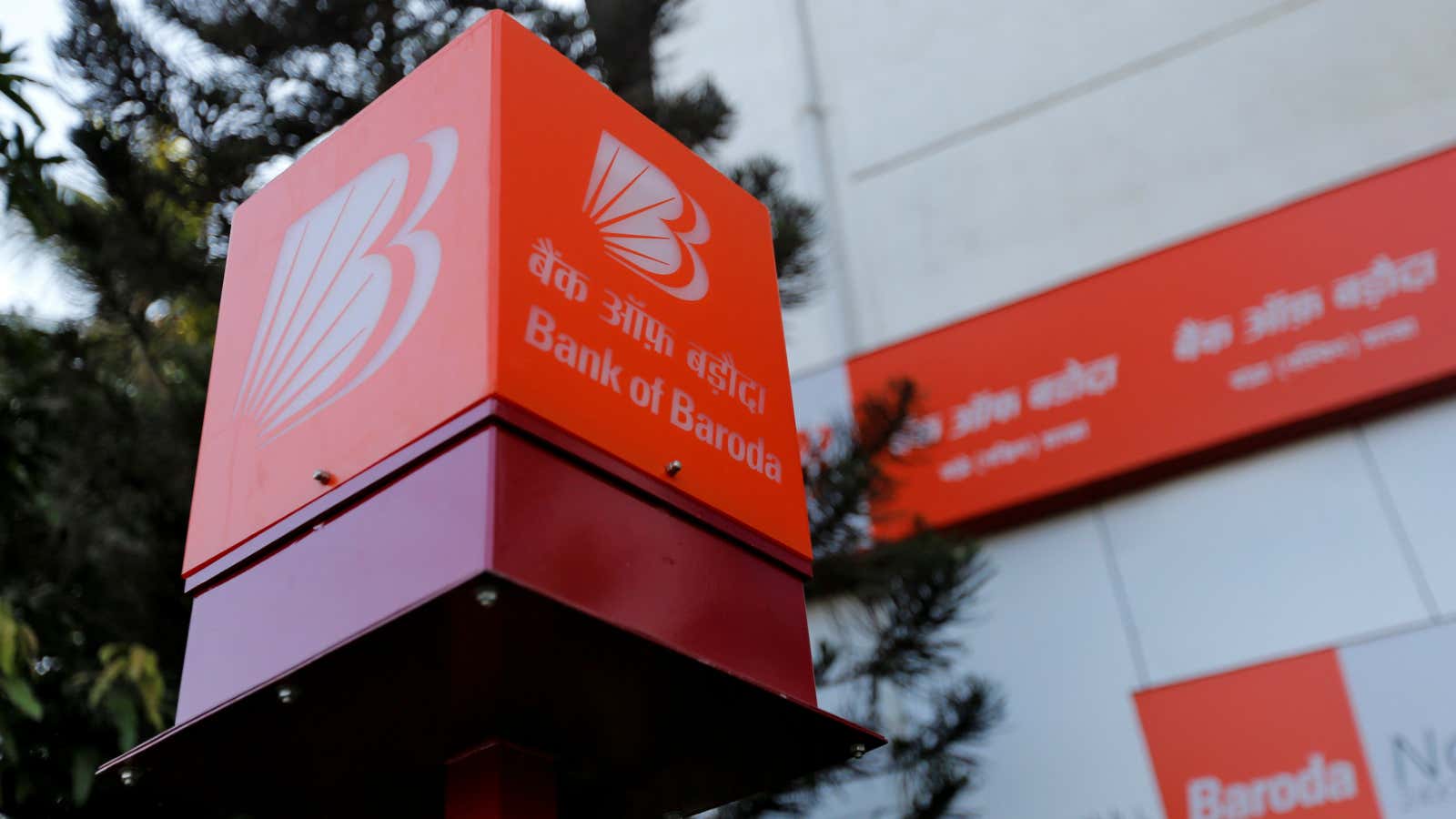In 2011, when a wave of anti-corruption sentiment engulfed India, Kanpur-based Rotomac Global signed on Bollywood personality Salman Khan for a campaign for its pens—and against corruption: Haath uthao, magar likhne ke liye (Raise your hand, but only to write).
Seven years on, charges of large-scale financial transgressions have left the company’s chairman and managing director Vikram Kothari’s hands tied.
The country’s top investigative agency, Central Bureau of Investigation (CBI), is probing Kothari for misappropriation of funds based on a complaint from state-owned Bank of Baroda (BOB). On Feb. 18, he, along with wife Sadhana and son Rahul, was booked for conspiring with some bank officials to dupe seven banks of nearly Rs3,700 crore ($574 million), a CBI official who didn’t want to be identified, told Quartz.
The news of Kothari’s reported misdeed broke just a few days after jeweller Nirav Modi, along with his uncle Mehul Choksi, chairman of Geetanjali Gems, made headlines over a $1.77 billion (over Rs11,000 crore) fraud at Punjab National Bank.
While both Kothari and Modi allegedly swindled banks, they are from very different worlds.
From pan masala to pens
Kothari is the son of the late entrepreneur Mansukhlal who founded the company now known as Kothari Products in 1973. The company gave India one of its best-known brands, Pan Parag—earlier a chewable tobacco product, and now a mouth-freshener.
In the 1980s, the family business was divided between Mansukhlal’s sons: Deepak took control of Kothari Products, which had Pan Parag as its principal product, while stationery brand Rotomac was spun off and given to Kothari.
In 1992, Kothari rechristened Rotomac Pens, which made stationery and greeting cards, as Rotomac Global.
Following Pan Parag’s branding strategy, Rotomac lined up celebrities, including poet and lyricist Javed Akhtar, to endorse its products. By 2017, it was an extremely popular brand producing up to a million pens a day.
In 1999, Kothari sold his entire residual stake in Kothari Products to brother Deepak. Since then, he has been the proverbial jack of all trades, setting up a network of businesses alongside Rotomac Global, including another stationery company, Crown Alba Writing Instruments (India), two commodity export firms Rotomac Exports and Rotomac Exim, and steel-maker Mohan Steel.
Besides Kothari himself, Sadhana and Rahul, too, are directors of the Rotomac Global. Their total net worth is a little over Rs100 crore today.
Things began going downhill as the firm failed to service its loans. In 2017, Bengaluru-based agency Brickwork Ratings downgraded the company’s credit rating (pdf) with a negative outlook due to “stressed liquidity conditions prevailing in the company and confirmation received from the lenders about instances of delay in servicing the debt obligations of the company.”
As of July 2017, its total bank loan outstanding stood at Rs2,172.60 crore, of which letters of credit alone were worth Rs2,045 crore, according to Brickwork Ratings. Rotomac Global was named a wilful defaulter in 2017 by BOB (pdf).
Bank fraud allegations
BOB turned up the heat on Feb. 18, lodging a complaint with the CBI against Kothari and his family.
Besides BOB, they were accused of cheating Allahabad Bank, Bank of Maharashtra, Indian Overseas Bank, Union Bank of India, Bank of India, and Oriental Bank of Commerce, the CBI official said. The trio is said to have siphoned off over Rs2,900 crore ($449 million), excluding the interest accrued.
“The CBI is conducting searches at three places in Kanpur and questioning all the three accused directors,” the official said. “It has sealed a residential premise and an office of Rotomac directors in New Delhi.”
So far, Kothari has not left the country. “It’s wrong to say I’m not paying it (the loans) back,” he told ANI on Feb. 16.
Update: Kothari, Sadhana and Rahul have been accused of misusing credit sanctions meant for export orders for other unrelated transactions, besides violating of India’s forex management rules, the first information report (FIR) filed by the bank showed.
It appears that in some cases, Kothari’s companies were engaged in exploiting the arbitrage in local and foreign currencies.
“The company was working in local and foreign currency differential, in addition to merchanting trade. There were no genuine transactions carried out by the company,” the FIR said.
